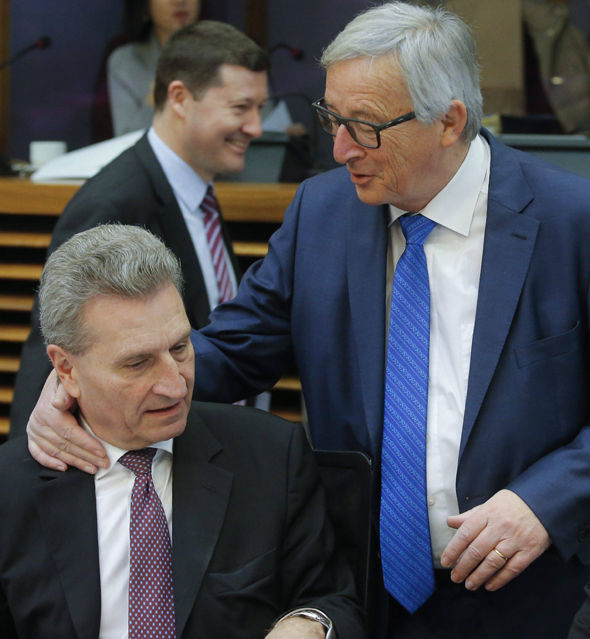Taken for granted
Strong words around the EU budget

Source of the photo: Daily Express
I have been asked recently to write an article about the benefits of EU membership. It was meant to inform the broader public and to enhance pro-EU feeling in my home country. But the editor basically wanted me to explain how much money we get from the EU, and it endlessly pissed me off. Because with an innocently good intention, he wanted to use the same selfish arguments as populists do and imply that the EU is only for money transfer. But when I see the debates around the 2021-2027 Multiannual Financial Framework (MFF) or any other European issue slightly related to money, I feel that even mainstream EU officials and top national diplomats have a similar interpretation.
“Italians have to take care of the poor regions of Italy. That means more work; less corruption; seriousness”, gave Commission President Jean-Claude Juncker a very thoughtful lesson to a country in deep political turmoil. His remark couldn’t have been better timed just two days after Commissioner Günther Oettinger’s comment on the financial markets teaching the Italians how to vote. Of course, they are perfectly right about the numerous problems of Italian politics and economy. But rubbing it to the face of a country in crisis definitely won’t help, even if the Commission has the power to sanction Italy if the new government won’t respect the principles of sound financial management.
Nor does it help when net beneficiaries claim their rights in a harshly arrogant way. As it has been proposed this week, Eastern member states with the booming economy would face 20-24 per cent cuts in the cohesion funds from 2021, while a few looming Southerners will see an increase. Poland’s state secretary on European Affairs, Konrad Szymanski have reacted in a moderately diplomatic manner: “We are ready to seek a compromise, but Central Europe should be treated fairly against other priorities and regions. Poland is on the path of economic development and the role of transfers from the EU budget will decrease, however, we do not give our consent for budgetary revolution.”
Like Juncker and Oettinger, the Polish state secretary assesses the European reality very promptly. The new budget won’t be approved without the consent of today’s net beneficiaries who will defend their interests till their last breath. No matter how controversial this reasoning is the light on the Polish, Hungarian and – let’s get used to the new fact – the Italian government’s critical and sometimes even hostile approach towards the European integration. Their logic is crystal clear: if they don’t get money, no one else should.
Even if French politicians can mince their words, the same desperateness can be felt in the country’s position on the funds for the Common Agricultural Policy (CAP). Of course, everyone knows that the sacrosanct CAP guarantees the peace in the country where farmers (like any other workers, let’s admit) are more than willing to paralyze the life if they are afraid of losing their privileges.
Well, net beneficiaries and net contributors, EU and government officials, editors and readers tend to forget that EU funds don’t exist just for the sake of spending money. They are meant to support the better functioning of the common market from which every member state should benefit. Therefore, their distribution should answer the challenges of the current economic situation. Let’s face that those days are over when the French agriculture needed to be supported after the second World War and post-communist states craved for an economic booster after their accession. A future budget shouldn’t depend on decade-old problems.
Not to mention that other points could be taken into consideration when we plan the next MFF. I dare to mention it less and less often, but I think about the over-emotional approach of common values and history, that somehow relates us, Europeans to each other.
